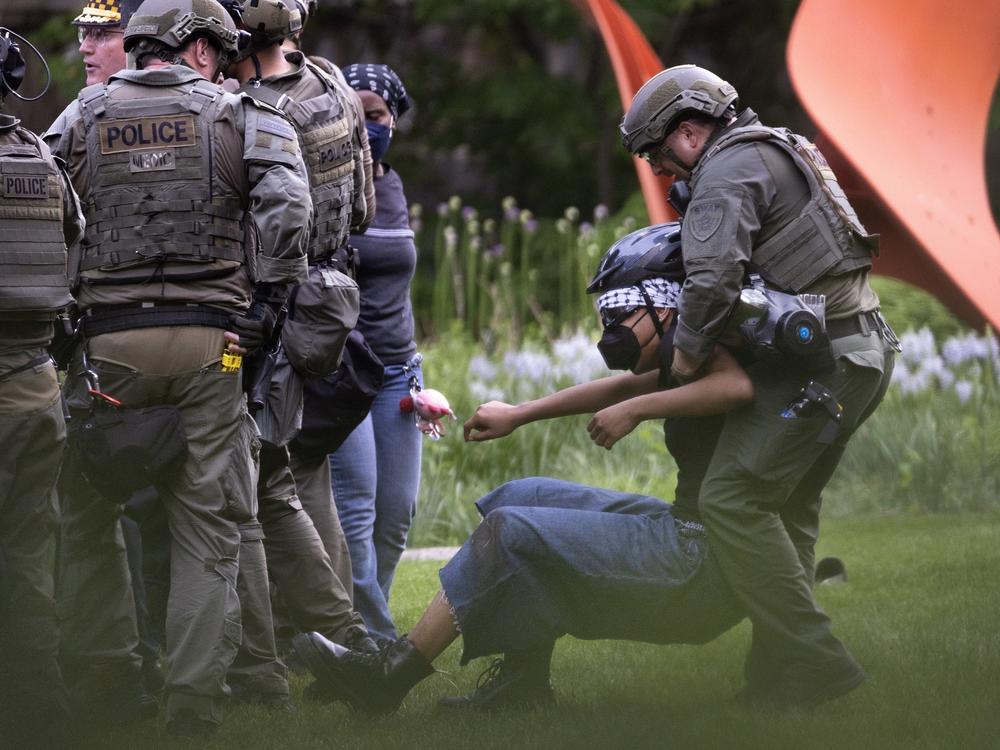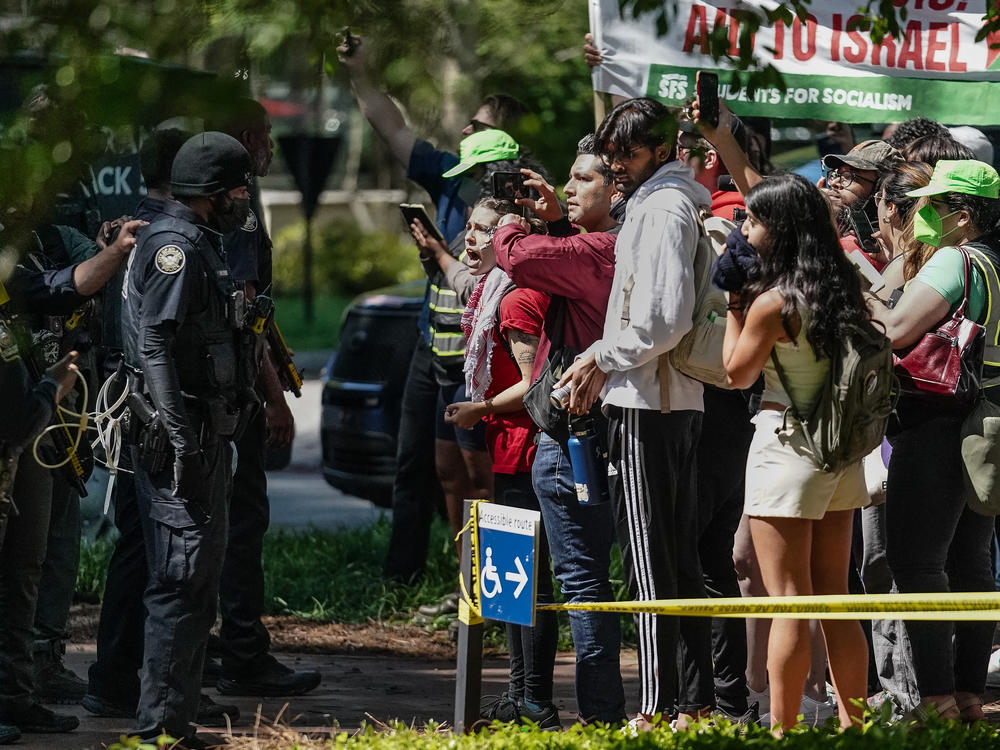Section Branding
Header Content
Authorities say 'outside agitators' are at Gaza war protests. We've heard this before
Primary Content
We've heard the term "outside agitators" a lot in the last few weeks as nationwide protests against Israel's war in Gaza have spread across college campuses.
More than 2,100 people have been arrested at the protests, and New York City officials say nearly half of the 282 people detained at two separate schools this past week are not currently affiliated with either institution.
Mayor Eric Adams has been among the most vocal critics of outsiders, saying they are the reason for the strong police presence on campuses.
"There is a movement to radicalize young people and I'm not going to wait until it's done and all of a sudden acknowledge the existence of it," he said — an assertion that many students disagree with.
This narrative of outsiders co-opting protests is not new. Here are times you may have heard it before:
- In 2020, during protests against the police killings of George Floyd and Breonna Taylor.
- During the 2014 Ferguson, Mo., protests after the killing of 18-year-old Michael Brown.
- During the anti-Vietnam War protests.
- To describe Rev. Martin Luther King Jr. during the Civil Rights Movement.
You're reading the Consider This newsletter, which unpacks one major news story each day. Subscribe here to get it delivered to your inbox, and listen to more from the Consider This podcast.
The term is vague and adaptable
The "outside agitator" label is not clearly defined and is somewhat malleable, says Justin Hansford, a law professor at Howard University and executive director of the Thurgood Marshall Civil Rights Center.
Hansford took part in the 2014 protests in Ferguson and says he has visited the recent campus protests against the war in Gaza. He told Consider This that "outside agitators" are usually characterized in three ways:
- They are are bad people
- They are not a legitimate part of the protest or movement
- They are manipulative and are trying to cause trouble
"Using that phrase makes [the protests] seem more dangerous ... it really just changes the vision and the image of what the protest is," he said.
Hansford also makes the distinction between agitators — who may be trying to instigate trouble — and infiltrators — who may belong to an opposing group trying to undermine a cause from the inside.
Possible motivations for using this specific phrase
Hansford acknowledges that there are outsiders coming to the protests on college campuses. He says history has shown authorities use the phrase "agitators" to create a pathway for a more aggressive response to protests.
"People look to the righteous outrage of folks who see these terrible images — whether it's George Floyd or what's happening happening in Gaza — and there's a certain level of sympathy," he said. "So it becomes a political risk to be seen as cracking down really harshly on folks who are sympathetic."
But if authorities can make it seem like they are going after nefarious outside agitators, Hansford said, it then goes over more smoothly politically.
To understand how the term was used against Martin Luther King Jr. and other Black protesters, listen to the full Consider This episode by tapping the play button at the top of the page.


